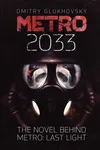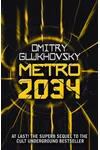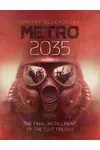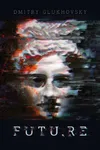Picture a Russian storyteller who turned the Moscow Metro into a post-apocalyptic playground—meet Dmitry Glukhovsky! Born in 1979, this visionary author and journalist is best known for his dystopian masterpiece Metro 2033, a novel that’s thrilled millions and sparked a global video game franchise. With a knack for blending science fiction, fantasy, and sharp social commentary, Glukhovsky has become a bold voice in contemporary literature, captivating readers with his gritty, immersive worlds.
But there’s more to Glukhovsky than his underground epics. His fearless journalism and outspoken critiques of political oppression have made him a cultural figure, even landing him on Russia’s wanted list. Ready to dive into the life and legacy of this literary rebel? Let’s go!
The Making of Dmitry Glukhovsky
Dmitry Glukhovsky was born in Moscow to a Jewish father, Alexei, a Gosteleradio editor, and a Russian mother, Larisa, a TASS photo editor. Growing up in the culturally rich Arbat District, he was surrounded by critical thinkers and storytellers. At 15, he dreamed up the concept for Metro 2033 while riding the Moscow Metro, fascinated by its labyrinthine history. After studying journalism and international relations in Hebrew at Jerusalem’s Hebrew University, he honed his multilingual skills, speaking English, French, German, Hebrew, and Spanish alongside Russian. His early career as a roving reporter for Euronews and Russia Today took him from Chernobyl’s exclusion zone to the North Pole, shaping his gritty, real-world perspective.
Dmitry Glukhovsky’s Unforgettable Stories
Glukhovsky’s breakout novel, Metro 2033 (2002), is a post-apocalyptic tale set in the Moscow Metro, where survivors of a nuclear war battle mutants and ideological factions. Published online for free, it drew millions of readers and became a bestseller, spawning sequels Metro 2034 (2009) and Metro 2035 (2015). His writing style is vivid and cinematic, blending psychological depth with political allegory, often critiquing xenophobia and authoritarianism. Twilight (2007), a magical realist thriller, explores fate and destiny, while Stories of Motherland (2010) offers biting satire of modern Russia. Each work showcases his ability to weave speculative fiction with real-world relevance.
Glukhovsky’s transmedia storytelling is groundbreaking. He collaborated with Ukrainian studio 4A Games to adapt Metro 2033 into a hit video game, contributing dialogue and story for sequels like Metro: Last Light. His novels have been translated into 37 languages, with over 5 million downloads, proving his global appeal. His work draws inspiration from Soviet sci-fi greats like the Strugatsky brothers, infusing classic Russian literary depth with modern dystopian flair.
Why Dmitry Glukhovsky Matters
Glukhovsky’s impact transcends fiction. His Metro series has redefined post-apocalyptic storytelling, blending visceral action with philosophical musings on humanity’s flaws. By releasing his work online for free, he pioneered interactive literature, engaging readers as co-creators. His journalism, covering war zones and political corruption, reflects his commitment to truth, even at great personal cost. In 2022, his criticism of Russia’s invasion of Ukraine led to an eight-year prison sentence in absentia, forcing him into exile. Yet, he remains a vocal advocate for peace, inspiring readers and writers to confront injustice through art.
His legacy lies in his fearless fusion of entertainment and activism. Glukhovsky’s stories don’t just entertain—they challenge readers to question power, fear, and the future, making him a vital voice in global literature.
About Dmitry Glukhovsky
- Born: June 12, 1979, Moscow, Russia
- Key Works: Metro 2033, Metro 2034, Metro 2035, Twilight
- Awards: Eurocon Encouragement Award (2007) for Metro 2033
- Languages: Fluent in Russian, English, French, German, Hebrew, and Spanish
Snag Metro 2033 and dive into Dmitry Glukhovsky’s thrilling dystopian world—your next obsession awaits!



